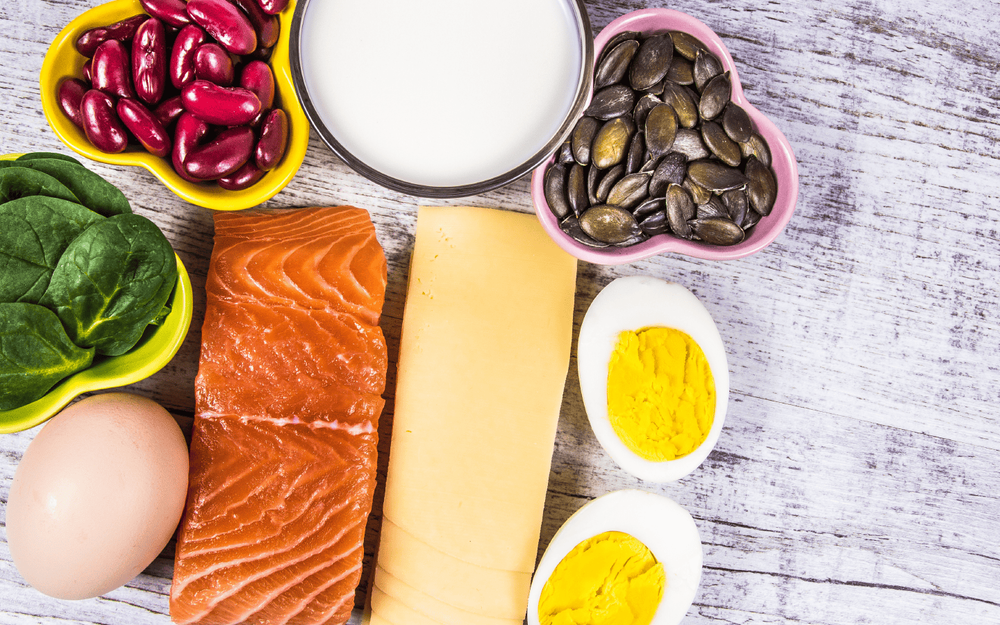
What is the Healthiest Diet?
Many of us are keen to know what the best and healthiest diet is, but the reality is that no one diet is considered the best diet regimen. Some people want to know the best diet to follow to lose weight, but ultimately, following a healthy diet is about ensuring you eat a diverse, well-balanced range of foods that help you maintain a healthy weight and get all the nutrients your body needs.
In this guide, we explain what makes a healthy diet, share tips to make your diet healthier, and explore how some of the most popular diets, including the Mediterranean diet, 5:2 diet, and a low-carb diet, can be beneficial.
What makes a healthy diet?
A healthy diet balances the energy you consume with the energy you use while also providing you with all the essential nutrients your body needs to stay healthy. To do this, you need to eat a diverse range of foods that meet your daily calorie needs.
What do you need for a healthy diet?
Following a healthy diet is about more than eating foods designed to help you lose weight. It is about ensuring that your nutritional needs are met and that you don’t consume more calories than your body needs.
So, to follow a healthy diet, it is important to:
- Consume plenty of whole grains, legumes (like beans and pulses), nuts, and seeds.
- Eat at least five portions (400g) of food and vegetables a day (excluding potatoes, sweet potatoes, and other starchy roots, like cassava).
- Get less than 10% of your total energy intake from free sugars - these are sugars that are added to food or drinks or that are naturally in certain products (like honey and fruit juice).
- Get less than 30% of your total energy intake from fats and try to prioritise healthier unsaturated fats found in fish, avocados, and nuts over unhealthier saturated fats found in foods like fatty meats, cheese, ghee, and palm oil.
- Consume less than 5g of salt a day.
It is also important to remember that a healthy diet requires balancing calorie consumption with body needs.
If you consume more calories than your body needs, this excess energy is stored as fat and causes you to gain weight. However, if you consume fewer calories than your body needs, you will lose weight, which can result in malnutrition in people of lower body weight.
How can I make my diet healthier?
To make your diet healthier, you should:
Prioritise fibre
There is evidence to suggest that eating plenty of fibre can reduce your risk of heart disease, stroke, type 2 diabetes, and bowel cancer.
Eating foods higher in fibre can also help you feel fuller for longer, reducing your overall calorie intake and helping you avoid overeating.
It is recommended that adults eat 30g of fibre daily as part of a healthy diet, but many people only manage to eat around 20g of fibre daily.
To increase your fibre intake you can try to:
- Choose a high-fibre breakfast cereal, like porridge oats, wholegrain wheat biscuits or plain shredded whole grains
- Choose wholemeal or granary breads instead of white bread
- Eat potatoes with their skins on
- Add pulses like lentils or chickpeas or beans to stews and curries
- Eat plenty of fruit and vegetables
Eat plenty of fruit and vegetables
You should aim to eat at least five portions of a variety of fruits and vegetables a day. Fresh, frozen, canned, dried, or juiced all count.
One portion is 80g of fresh, canned, or frozen fruit or vegetables or 30g of dried fruit. A 150ml glass of fruit or vegetable juice or a smoothie also counts, but you should only have one glass per day, as these drinks can contain a lot of sugars which can be bad for your teeth.
Getting your five a day is easier than it sounds. Try adding a piece of fruit to your breakfast cereal or swapping your usual snack for a piece of fruit or a portion of vegetables, like carrots sticks and houmous.
Consume less saturated fats
Everyone needs some fat in their diet, but it’s important to understand the amount and types of fat you regularly consume.
There are two main types of fat: unsaturated and saturated fats. Too much saturated fat in your diet is bad as it can increase the amount of cholesterol in your blood and increase your risk of heart disease.
On average, men should consume no more than 30g of saturated fat a day and women no more than 20g.
Saturated fats are typically found in:
- Fatty cuts of meat
- Sausages
- Butter
- Hard cheese
- Cream
- Cakes
- Biscuits
- Lard
- Pies
To reduce the amount of saturated fats you eat, try to choose foods high in unsaturated fats instead. This includes foods like vegetable oils and spreads, oily fish, avocados and nuts. You can also try to opt for leaner cuts of meat.
Consume less salt
Eating too much salt can raise your blood pressure, and people with high blood pressure are at higher risk of heart disease or stroke.
To reduce your salt intake, you should avoid adding salt to your food when cooking or before eating.
However, as three-quarters of the salt you eat is already in the food you buy, it is important to also check food labels. If a food has more than 1.5g of salt per 100g it is high in salt, and should only be eaten in moderation on occasion.
Reduce your sugar intake
Eating foods high in free sugars regularly increases your risk of being overweight or obese, as they are often higher in calories so can contribute to weight gain. They can also increase your risk of tooth decay.
Free sugars are any sugars added to food or drinks or those found naturally in honey, syrups, and unsweetened fruit juices and smoothies.
To reduce your sugar intake, it’s important to look at food labels when making food and drink choices. If a product contains more than 22.5g of total sugar per 100g it is high in sugar. If it contains less than 5g of total sugar per 100g it is low in sugar.
Stay hydrated
It is recommended you drink six to eight glasses every day in addition to the fluid you get from the foods you eat to prevent dehydration.
All non-alcoholic drinks count, but water, low fat milk and low sugar drinks, including tea and coffee are considered healthier choices than sugary soft or fizzy drinks, which can be higher in calories and bad for your teeth.
Why is the Mediterranean diet considered healthy?
The Mediterranean diet is often heralded as an example of a healthy diet, as several studies have shown it helps:
- Promote weight loss
- Help prevent heart attacks, stroke and type 2 diabetes
- Reduce the risk of premature death
A Mediterranean diet is based on the traditional foods of countries bordering the Mediterranean Sea. Research has shown that people in these regions tend to be healthier, with lower risk of many chronic health conditions like heart disease that typically affect those following a more Western diet.
Typically, following a Mediterranean diet encourages people to consume more:
- Fruits
- Vegetables
- Whole grains
- Legumes
- Nuts and seeds
- Heart-healthy fats
In addition, people are encouraged to consume less:
- Processed foods
- Added sugars
- Refined grains
- Alcohol
Unlike many diets, the Mediterranean diet has no hard and fast rules. It is more about prioritising unprocessed, unrefined foods and cooking with fresh, wholesome ingredients from scratch.
The focus of a Mediterranean diet is also less on weight loss and more on following a holistic diet with multiple health benefits. As a result, some people find that with a few changes to their lifestyle, switching to a Mediterranean diet is easier than following a very rigid and restrictive diet plan.
Why is the 5:2 diet good for weight loss?
The 5:2 diet has some research to suggest that it is an effective diet to follow if your primary aim is to lose weight if you are overweight or obese.
Pioneered by Dr Michael Mosley, the 5:2 diet is a type of intermittent fasting diet that involves significantly restricting your calorie intake two days per week and eating normally the other five days. Generally, it is recommended that you restrict yourself to just 25% of your normal calorie intake on the two ‘fasting days’, which typically means consuming just 500-600 calories.
With the 5:2 diet, there are no restrictions on the types of food you eat. However, following a balanced diet is emphasised. Many people find that on fasting days, it becomes more important to prioritise high-protein foods that keep them fuller for longer. This can lead to healthier food choices and an improvement in eating habits on non-fasting days.
Is a low carb diet a healthy option?
Like the 5:2 diet, a low-carb diet can be beneficial to those looking to lose weight. Though specific guidelines vary, a high-carb diet typically limits foods high in carbs or added sugars and encourages the consumption of foods high in protein (like meat and eggs), healthy fats (found in foods like fish and nuts), and vegetables.
Most low-carb diets suggest getting no more than 26% of your total daily calories from carbohydrates, which for someone following a 2,000-calorie intake a day means eating less than 130 grams of carbs per day.
Some examples of low-carb diets include:
- Keto diet – this diet restricts carbohydrate intake significantly to less than 5-10% of total calories a day
- Atkins diet – typically involves limiting carb intake to just 10g per day initially, before slowly increasing, but not exceeding 100g per day
- Paleo diet – this diet mimics the eating patterns of ancient hunter-gatherers, so naturally limits carb intake
- Dukan diet – this diet restricts carbs while being high in protein and low in fat, there are four phases to help people reach and maintain their weight loss
Although following a low-carb diet can be beneficial for weight loss, some of the diets can be very restrictive. This can make them harder to follow long-term, and can lead to deficiencies in certain nutrients if you don’t make sure you are eating a diverse range of foods or taking appropriate supplements.
Uncover more about your general health and wellbeing with Bluecrest Wellness
If you want to know what the healthiest diet is, the chances are that you may also be keen to take a proactive approach to managing your overall health and wellbeing. At Bluecrest Wellness, we pride ourselves on delivering comprehensive insights into your general health through our private full-body health checks.
Our private health MOTs have been designed with you in mind and include a range of private blood checks, such as a full blood count, liver and kidney tests, and cholesterol and diabetes checks. They also provide insights into your risk of certain health conditions, including heart disease.
You can book private health MOTs across the UK, so it is easy to find a location that’s convenient for you. Plus, you can be confident that we will deliver fast, efficient and accurate results as we have established links with leading UK laboratories and are fully accredited for a wide range of private blood checks.
BOOK A PRIVATE HEALTH MOT TODAY














